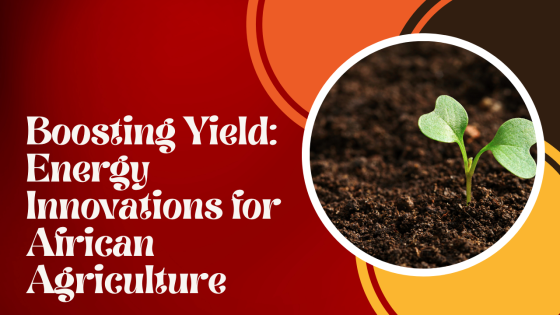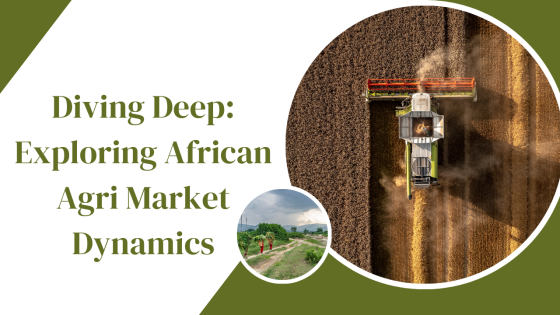
The African Agricultural Landscape: Challenges and Potential
Africa, with its vast landscapes and diverse climates, holds immense agricultural potential. But it’s no secret that the continent has faced its share of challenges. From unpredictable weather patterns to limited access to capital, African farmers have long grappled with barriers to success. However, in adversity lies opportunity, and Africa is rising to the occasion.
The Power of Sustainable Farming
Resilience in the Face of Climate Change
African farmers have always been at the mercy of nature. Changing weather patterns, prolonged droughts, and unexpected floods have made agriculture a high-risk endeavor. But sustainable farming practices are changing the game. Practices like crop rotation, agroforestry, and organic farming not only reduce the environmental impact but also make farms more resilient to climate fluctuations.
Boosting Crop Yields
Sustainability isn’t just about protecting the environment; it’s also about ensuring food security. Sustainable farming techniques can significantly increase crop yields, ensuring a steady supply of food for local communities. By using natural fertilizers, implementing precision agriculture, and employing eco-friendly pest control methods, African farmers are reaping the benefits of higher productivity.
The Agritech Revolution
Precision Agriculture for Precision Results
Agriculture in Africa is no longer confined to traditional methods. The integration of technology, known as agritech, is transforming the way farmers work. With the help of drones, sensors, and data analytics, farmers can make informed decisions about planting, irrigation, and pest control. This not only saves time and resources but also maximizes yields.
Access to Market Information
In the past, African farmers often faced the challenge of not knowing when, where, and how to sell their produce. Agritech solutions are bridging this information gap. Farmers can now access real-time market prices, helping them make strategic choices about when to sell their crops for the best possible returns.
Alternative Finance Models: A Lifeline for Farmers
Breaking Free from Traditional Constraints
Access to finance has historically been a significant obstacle for African farmers. Traditional banks often shy away from lending to smallholders, considering them high-risk borrowers. However, alternative finance models, such as microloans, crowdfunding, and farmer cooperatives, are changing the financial landscape. These models provide farmers with the capital they need to invest in their farms and livelihoods.
Inclusivity and Community Support
One of the remarkable aspects of alternative finance models is their focus on community support. Farmer cooperatives, in particular, encourage collaboration and knowledge sharing among farmers. This not only strengthens the agricultural community but also fosters a sense of belonging and empowerment.
FAQs: Your Burning Questions About Sustainable Farming in Africa
Q1: How can sustainable farming combat food insecurity in Africa?
Sustainable farming is a key solution to combat food insecurity in Africa. By implementing practices that enhance crop yields and reduce environmental impact, African farmers can ensure a steady supply of food for their communities, ultimately improving food security.
Q2: How do agritech solutions benefit smallholder farmers in Africa?
Agritech solutions benefit smallholder farmers by providing them with valuable tools and information. Drones, sensors, and data analytics help farmers make informed decisions, increase productivity, and access real-time market information, enabling them to maximize their profits.
Q3: What are the advantages of alternative finance models for African farmers?
Alternative finance models offer advantages such as increased access to capital and a focus on inclusivity and community support. They empower farmers to invest in their farms and livelihoods, breaking free from the constraints of traditional banking systems.
Wrapping it Up: The Future of African Agriculture
In closing, it’s evident that sustainable farming, agritech, and alternative finance models are steering African agriculture towards a brighter future. African communities are no longer just victims of adversity; they are active participants in their own empowerment. By harnessing the power of these innovations, African farmers are not only growing crops but also cultivating hope, resilience, and prosperity.
As we look ahead, the potential for growth in African agriculture is boundless. The synergy between sustainable practices, technological advancements, and financial inclusivity is a formula for success. So, let’s continue to support and invest in the farmers who are the backbone of our communities. Together, we can ensure that the fields of Africa remain fertile, not just with crops, but with opportunities and empowerment for all.




















